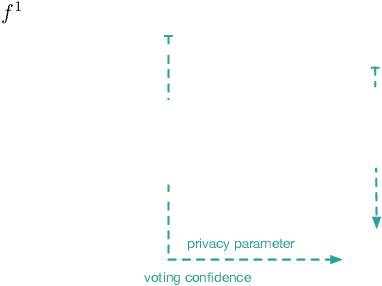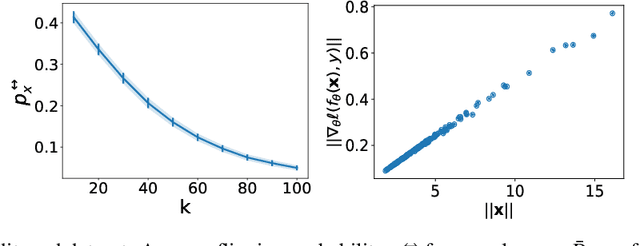Kyle Beiter
A Fairness Analysis on Private Aggregation of Teacher Ensembles
Sep 17, 2021



Abstract:The Private Aggregation of Teacher Ensembles (PATE) is an important private machine learning framework. It combines multiple learning models used as teachers for a student model that learns to predict an output chosen by noisy voting among the teachers. The resulting model satisfies differential privacy and has been shown effective in learning high-quality private models in semisupervised settings or when one wishes to protect the data labels. This paper asks whether this privacy-preserving framework introduces or exacerbates bias and unfairness and shows that PATE can introduce accuracy disparity among individuals and groups of individuals. The paper analyzes which algorithmic and data properties are responsible for the disproportionate impacts, why these aspects are affecting different groups disproportionately, and proposes guidelines to mitigate these effects. The proposed approach is evaluated on several datasets and settings.
 Add to Chrome
Add to Chrome Add to Firefox
Add to Firefox Add to Edge
Add to Edge